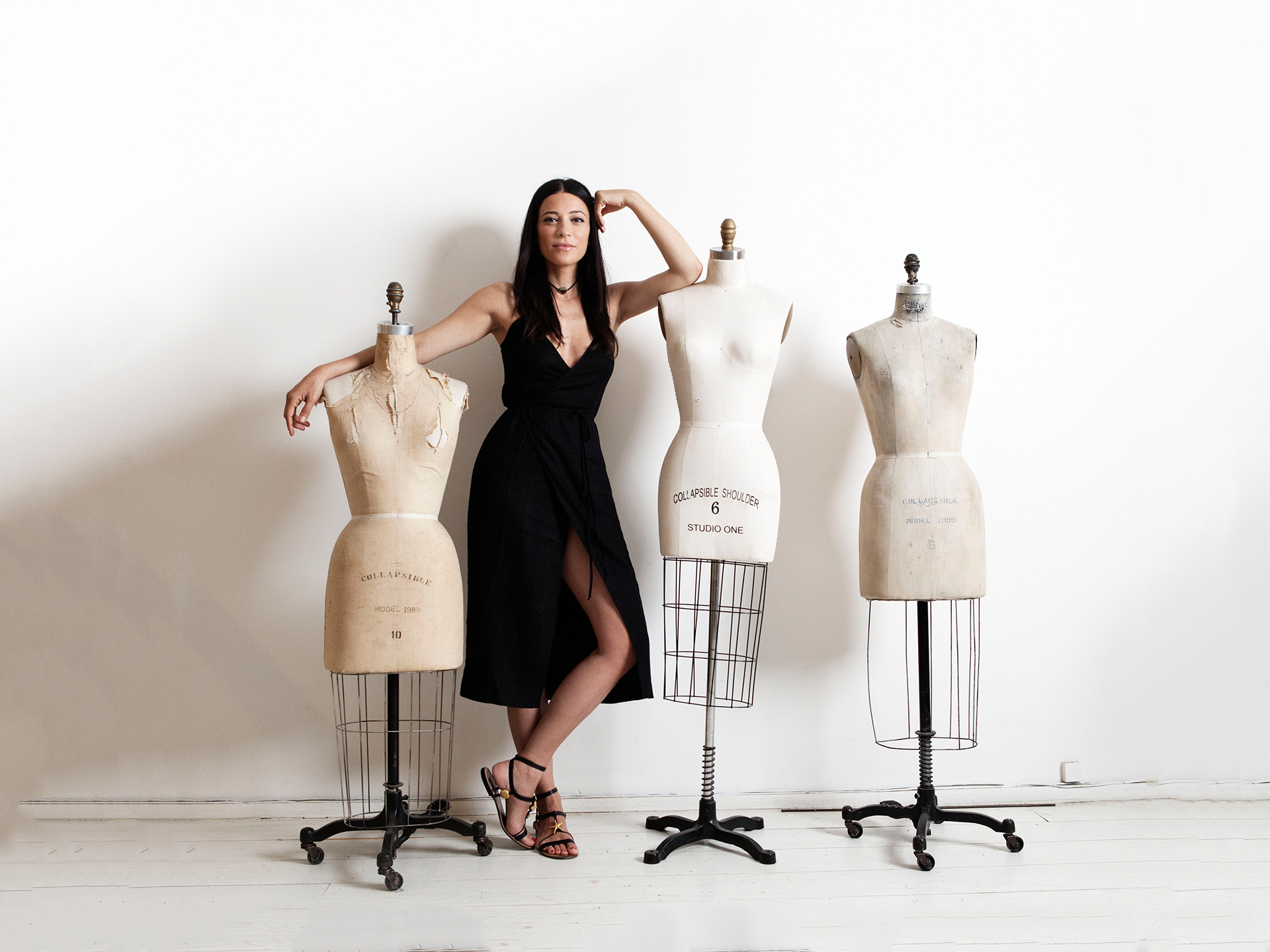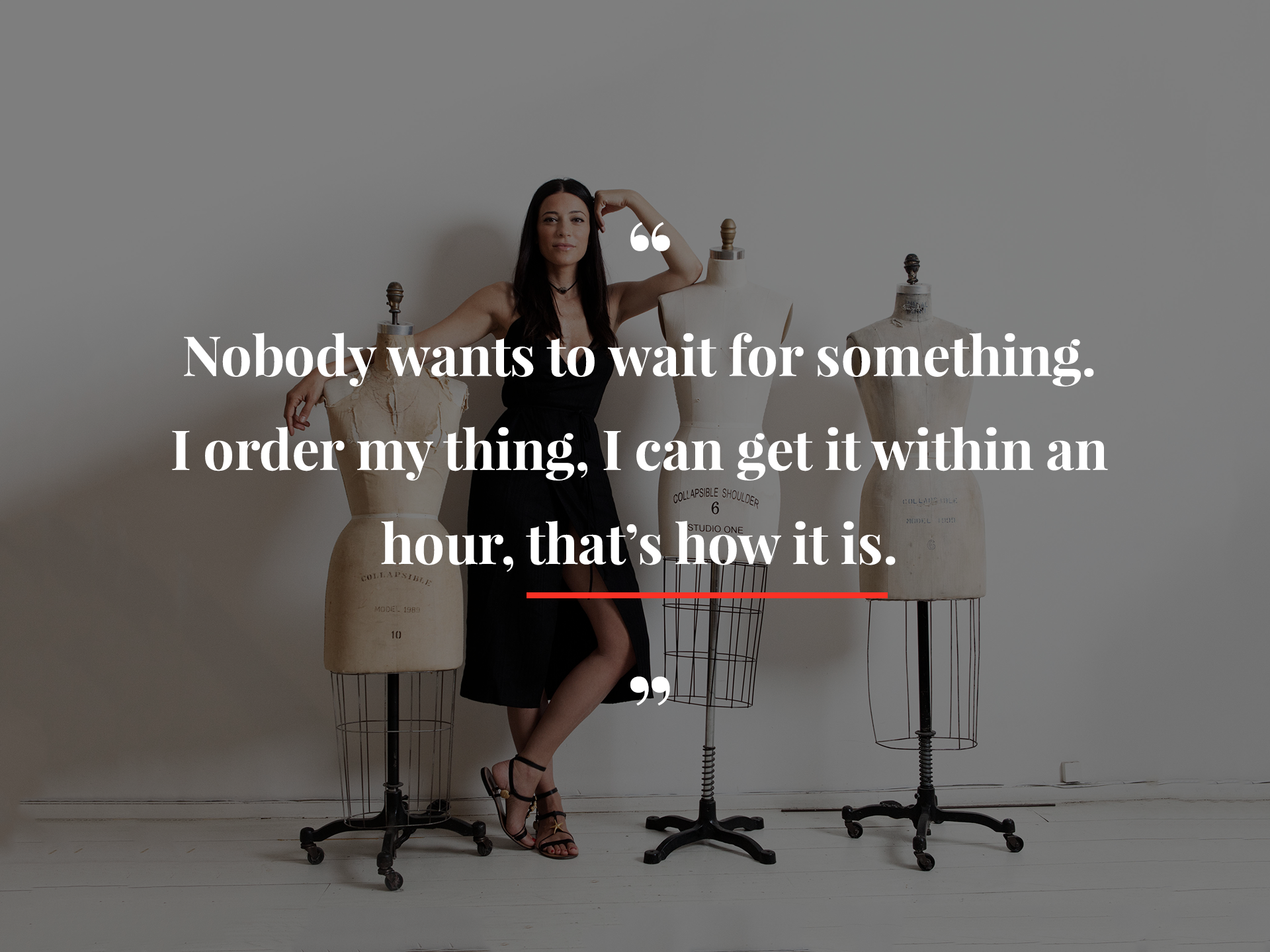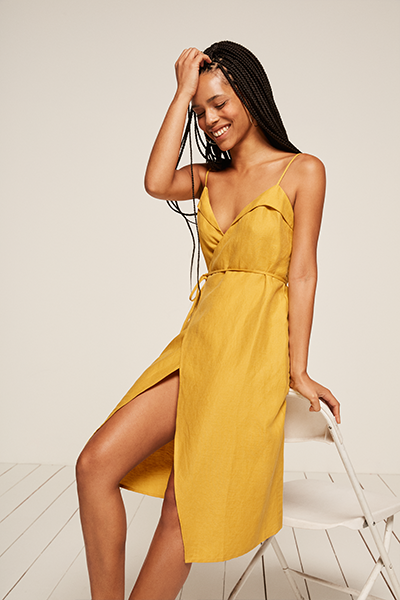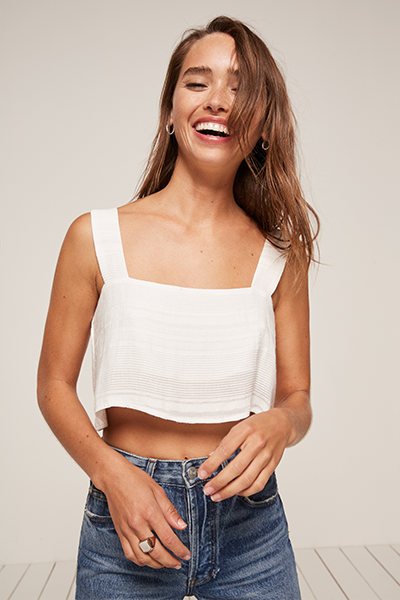
At a time when fashion is in a state of flux, we’re looking to the industry’s next generation of influencers as a guiding light. This New York Fashion Week, Refinery29’s Future of American Fashion series is highlighting the designers, brands, and retailers we’re betting on big. The future starts here.
As department stores continue to crumble, Reformation founder and CEO Yael Aflalo has some valuable advice: “The future of fashion is fast.” Of course, the 39-year-old entrepreneur follows this mantra first hand as she ships 52 deliveries a year of her insouciant printed dresses and cut-to-there bodysuits that are nearly always sold out and are worn by the likes of Sienna Miller and Emily Ratajkowski. “A typical fashion brand ships four times a year, there’s just no benefit to designing clothes 18 months in advance,” she says. “You only get to learn [about your customer] four times a year then, that’s not much learning.”
Aside from being educated by her woman (and subsequently giving her what she actually wants), Aflalo credits the immediacy of our culture — the rise of Instagram and Snapchat and same-day Amazon Prime deliveries — for our insatiable desire for new, new, new. “Everything is fast now,” she continues. “Nobody wants to wait for something. I order my thing, I can get it within an hour, that’s how it is.”
PHOTO BY CELESTE SLOMAN.
Sustainability Is Cool
Aflalo prides Reformation on its sustainable initiatives as much as being “customer obsessed.” Following Elon Musk’s First Principal Thinking, she says, “Fast-fashion does not mean that it’s worse for the environment. The only examples that we have of fast-fashion are cheap companies that make clothing out of very bad materials, so we equate fast-fashion with bad for the environment or low quality, that people buy more of them and throw them away, creating this disposable culture.”
For that reason, Reformation’s pieces are not throw away clothes. Since launching in 2009, Aflalo has sourced covetable sustainable, vintage, and deadstock fabrics for her collections, and designed, manufactured, packed, and shipped her offerings from her Los Angeles-based headquarters, and her awareness for the environment has only increased, e.g., since this past Earth Day, she even started introducing tours of her new downtown LA factory so customers can actually see where the magic happens. She credits her ingenious RefScale, an internal tool meant to calculate waste footprints, on what keeps her team continuously accountable — last quarter the brand made clothes that created 53% less waste and used 77% less water than her competitors.
“I think that climate change is the biggest issue facing the world, and I’m often surprised that more people don’t get into action about it but that’s ok,” she says. “I know how to make clothes and so I decided that I should start a sustainable fashion brand. That’s my part.”
Creeping Into The Zeitgeist
That Reformation has become so popular, while still being environmentally aware, is what Aflalo calls their “differentiator.” Mainly it has to do with the fact that her “vintage-inspired” pieces don’t look like they’re blah reinterpretations of something you would find in your great grandmother’s closet, but modern versions of what’s trending now: crop tops, off-the-shoulder blouses, two-piece sets, and deep-V high-slit wrap dresses. Consider denim which they launched earlier this spring. The first delivery sold out immediately simply because Aflalo and her team tested the product—novel approach, sure. Even their front-to-back 180 degree zipper jeans, “their riff off the viral Vetements jeans from a few seasons ago,” is currently out of stock with a never-ending waitlist. “We’re never going to launch a category, hire a big team, put a lot of marketing dollars behind it, hire an expensive model, and put it everywhere. We never do that. Never,” she says. Denim came about more organically — they had been slowly testing their in-house styles for eight under-the-radar months before proliferating it. “A typical company will start with one really great jean and go from there, we’re like, ‘Let’s start with 30 jeans and work our way down to four,’” she explains.




